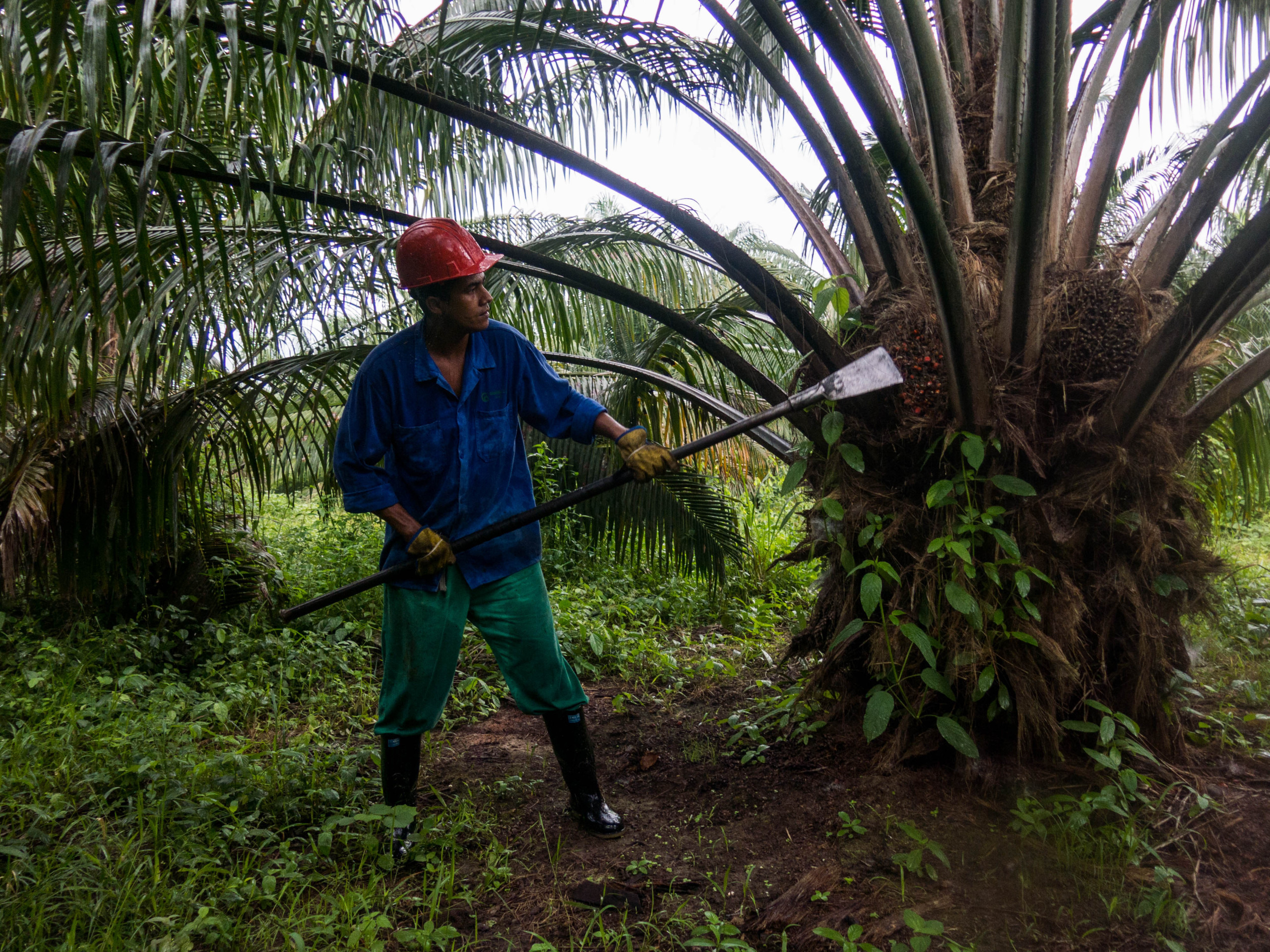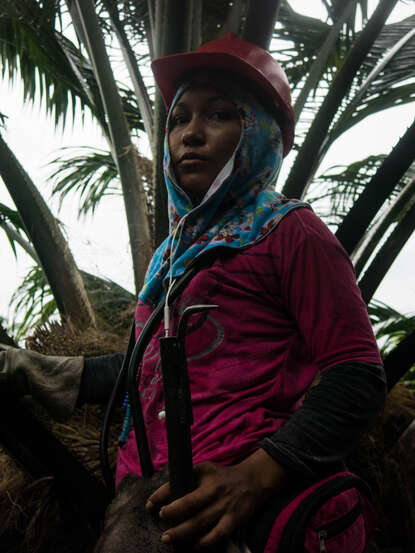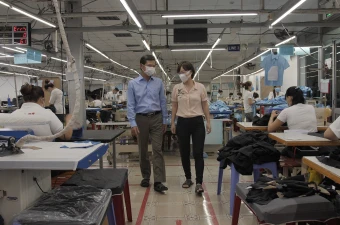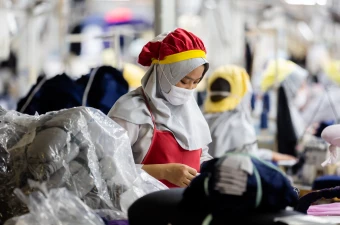Start of the Alliance to create Change through Social Dialogue
Palm oil is used in up to 50% of all consumer products today. Originally found in West Africa, the oil palm tree is now cultivated more and more across Asia, Africa, and Latin America. Millions of workers earn a living in palm oil production. They are the indispensable workforce of the sector, but their fundamental labour rights are often not respected. CNV Internationaal analysed the conditions of the workers and calls the stakeholders to join it’s Alliance to create Change through Social Dialogue. “We invite the sector to start a joint process to solve the issues, following the road map we developed, involving all stakeholders of the value chain”, says CNV Internationaals’ managing director Elles van Ark.
Throughout the palm oil sector inAsiaand in Latin America labour rights violations remain prevalent. The most severe labour rights risks include forced labour, child labour, health and safety risks, gender discrimination, unfair wages and income, little or no access to social security. Trade union rights abuses - like the lack of freedom of association and to negotiate collective bargaining agreements - hinder workers from having their voices heard and standing up for their interests.

“We invite the sector to start a joint process
to solve the issues, following the road map we developed,
involving all stakeholders of the value chain”
Alliance
The sector increasingly attempts to address these labour rights issues in the palm oil value chain. “A huge challenge that can be achieved step by step if we create an alliance that brings everyone in the industry to the table to start a joint social dialogue” says Elles van Ark, managing director of CNV Internationaal.
To increase sustainability and human rights compliance within the sector the Round Table for Sustainable Palmoil RSPO has been created, a certification standard that includes stakeholders throughout the value chain. Although labour rights are part of the RSPO standard, a stronger focus on social impact is indispensable as there are still many steps to be taken when it comes to compliance.
The voice of the workers
RSPO recently started also including the workforce through trade unions. Indonesian trade union Hukatan, a CNV Internationaal partner, was the first to join RSPO. CNV Internationaal itself became a member in 2020.

“To give the palm oil workers a voice they need to be organized, “ says Elles van Ark, managing director of CNV Internationaal. “That’s the way to involve them in social dialogue negotiations regarding sustainable labour improvements.
The results of these negotiations become part of collective bargaining agreements, which are monitored and periodically renewed. An intrinsically sustainable and inclusive approach to labour improvements.”
Social impact
Stakeholders in the palm oil sector increasingly are aware of the proactive role they can play in addressing social issues at the beginning of the value chain. For instance, RSPO has set up a working group on labour rights and various buyers are collaborating with NGOs and unions to understand and tackle the labour rights risks in the chain. Trade union freedom, negotiation of CBAs and social dialogue are indispensable elements to increase the social impact of RSPO’s sustainability processes.
Task force
CNV Internationaal wants to make a call to action to start a task force for social dialogue with all stakeholders in the palm oil supply chain and the members of RSPO. The main goal of this task force is to support a process to promote social dialogue in the sector. Our aim is to reach sustainable change by organizing and initiate actions to promote social dialogue in the sector
Call to action and road map
We have developed a road map to reach sustainable change, which includes a step-by-step approach to help stakeholders in the value chain to collaborate with their workers and unions.
Per stakeholder we have formulated a set of recommendations, so everyone - from producers to refineries, traders and buyers - can contribute to improving social dialogue and to encourage new forms of worker participation for all workers
The role of the taskforce is to provide technical assistance and training. We will initiate pilots to start social dialogue on living wage. Lessons learned of these pilots and good practices will be shared. A data portal on labour rights risks will enable monitoring improvements and remaining risks and issues.
We invite you to join the Alliance to create Change through Social Dialogue now and start the journey together!
Let me know if you are interested to participate : e.vanark@cnv.nl.
Learn more:
CNV Internationaal’s road map includes:
Key Findings of Palm Oil Studies in Latin America and Asia
Road Map towards Increasing Social Impact in the Palm Oil Sector through Social Dialogue
Spanish Road Map Paper
Crear una Alianza por el Cambio mediante el Diálogo Social
en el sector del Aceite de Palma
Hoja de Ruta y Llamado a la Acción(Download PDF)
Publication date 29 09 2021


